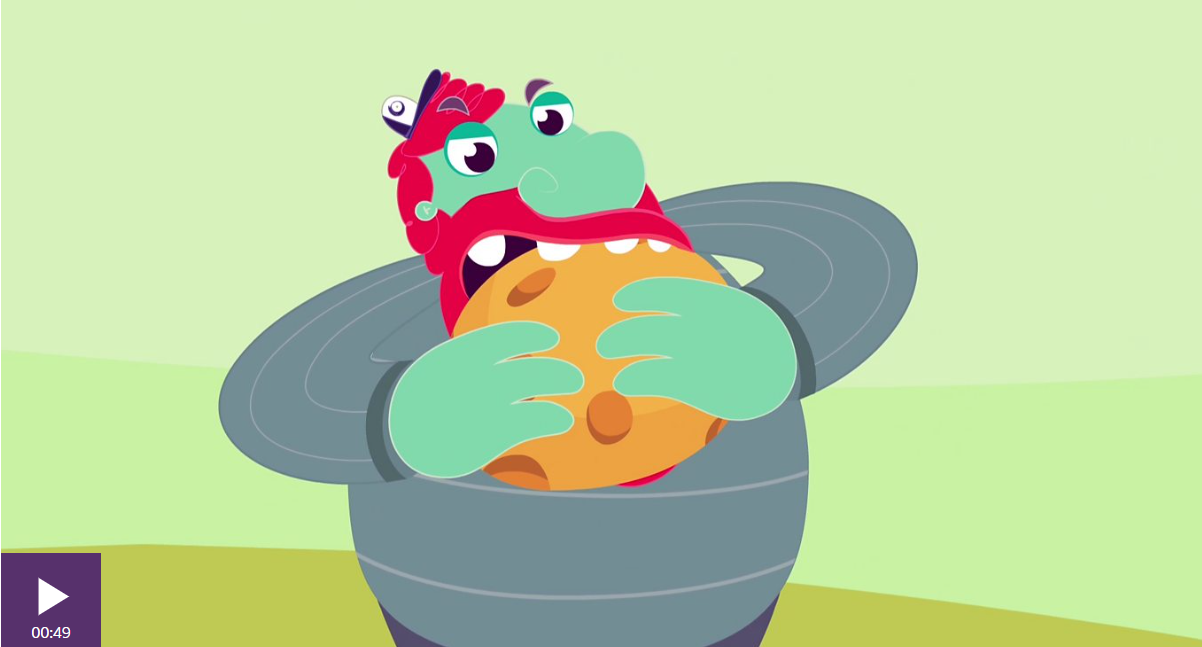Wednesday

English
Wednesday 4th December 2024
LC: To use the comma to separate clauses in sentences where the subordinate clause comes first.
The  bits
bits
A complex sentence contains two clauses- a main clause and a subordinate clause.
Main clauses are also often referred to as independent clauses because they don't need any additional information to make sense. They can stand alone perfectly fine without the support of another clause. They express a complete thought.
Subordinate clauses need a little help to make sense, and they are also often referred to as dependent clauses. A subordinate clause is a clause that can't stand alone as a complete sentence, even though it contains a subject and a verb. It doesn't contain a complete thought. It has to be linked to the main clause using a subordinating conjunction.
Subordinate clauses begin with subordinating conjunctions:
when if because although while since until before after
The subordinate clause can come at the beginning of a sentence. When it does, a comma is needed to separate the clauses.
Add a subordinate clause to each of these main clauses. It can be the first clause or the second. Remember to punctuate the sentences correctly.
he played on the computer
Adam bought a new toy car
Bethany might win the prize
the mischievous toddler threw his food
babies like playing peekaboo
you should wash or sanitise your hands
Farah completed a quiz about her book
Wednesday 4th December 2024
LC: Explain the meaning of unfamiliar words by using the context.
. . . as if by magic.


Do you think the owl and the cat appeared by magic?
If not, how else might they have got there?
In your group, predict how the animals got there.
Vocabulary
In your talking partners, discuss the word you have on your card.
Have you heard the word before?
Have you read the word before?
Are there any clues within the word to help work out its meaning?

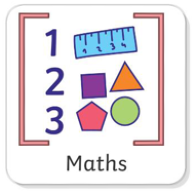
Maths
04.12.24
LC: To subtract two 3-digit numbers with renaming.
Whole Class
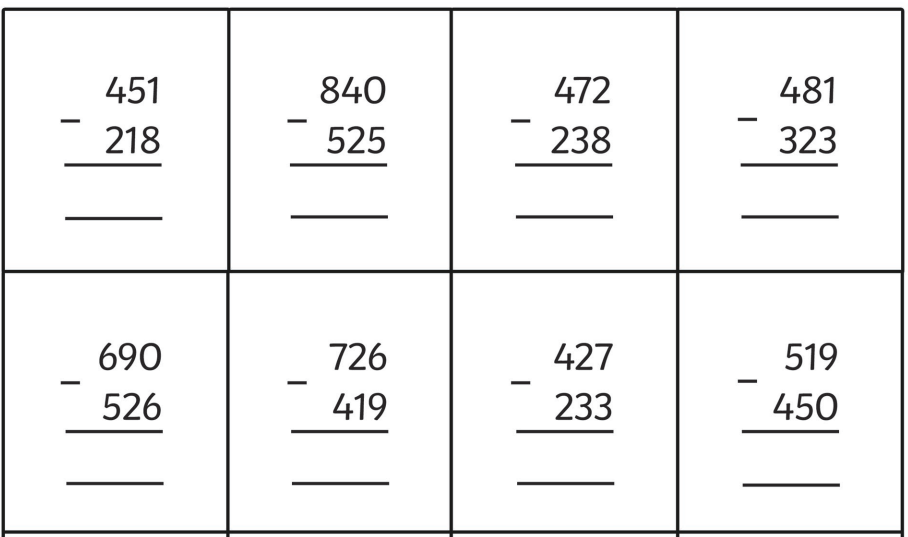
Independent
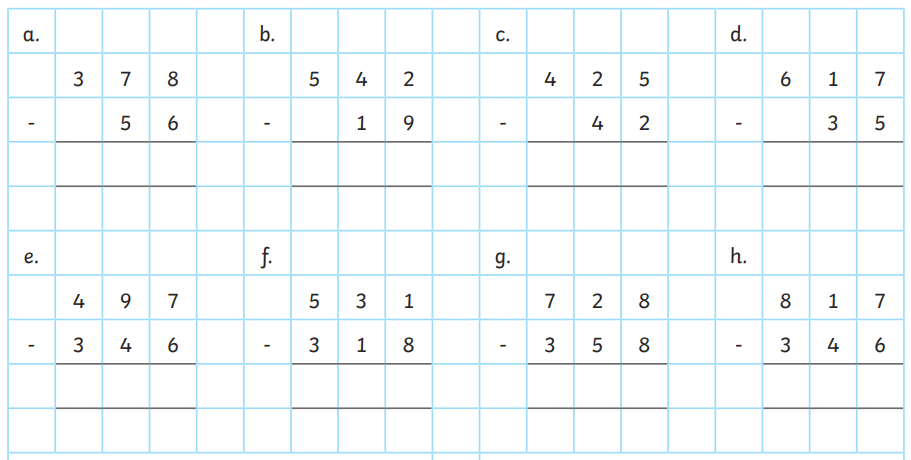

Reading
RIC
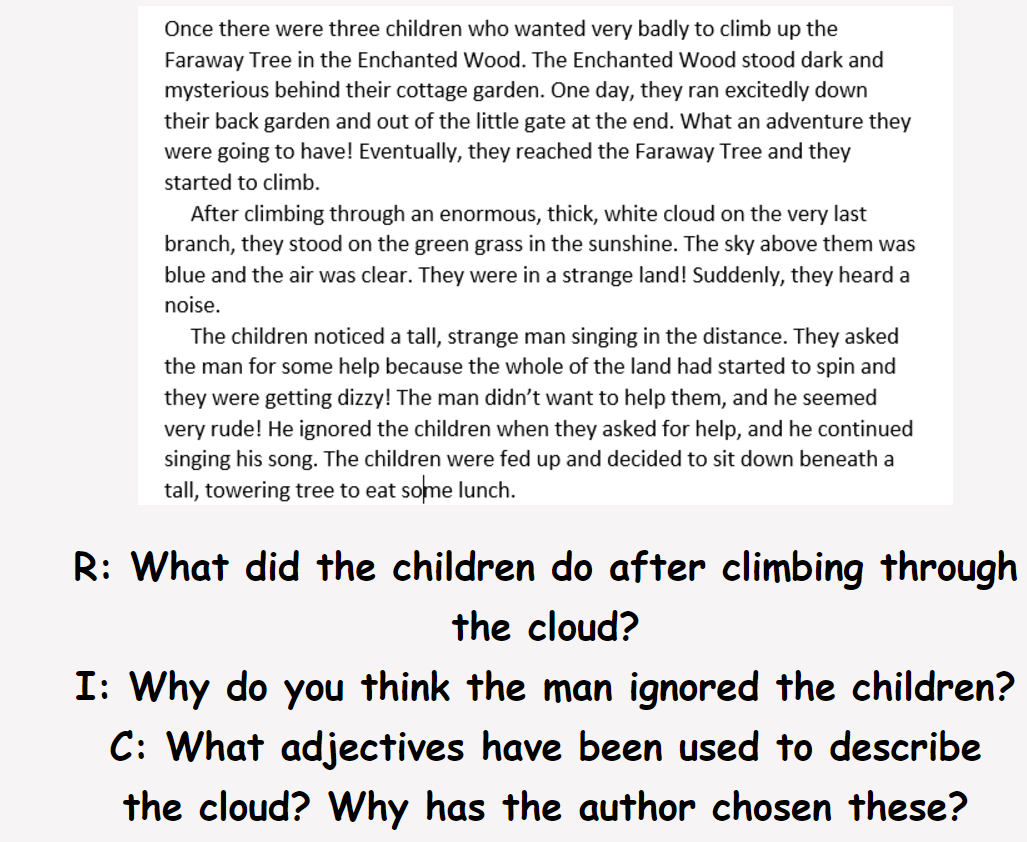
Main
Wednesday 4th December 2024
LC: To recognise different forms of poetry
Can you remember what a syllable is? Tell your talk partner.
Let's have a quick re-cap on our whiteboards.
Today we will be looking at a different type of poem called a Narrative poem.
Click on the picture below to take a look.
A narrative poem tells a story through verse. It includes characters, a setting, and a plot, much like a short story, but uses poetic language and structure.
In the misty hills where shadows play,
Lived a dragon fierce, both bright and grey.
With scales like emeralds and eyes of fire,
He soared through the clouds, a creature to admire.
One day, a brave knight, with sword held tight,
Ventured forth, seeking glory and light.
But the dragon, gentle, with a heart that gleamed,
Just wanted a friend, or so it seemed.
Let's answer these questions together.
Who are the characters in this narrative poem?
Where is it set?
What happens (plot)?
Now it's your turn to have a look at the next poem and answer the questions in your Reading Journals.
In a shimmering river, where the tall reeds sway,
Lived a clever crocodile, fierce but bright as day.
With a smile so wide and sharp, as sharp as a knife,
He dreamed of adventures, a truly wild life.
One sunny morning, with a splash and a dash,
He swam to the shore with a curious flash.
“A picnic!” he shouted, “Oh, what a delight!
I'll invite all my friends to feast under bright light!”
Who is the character in this narrative poem?
Where is it set?
What happens (plot)?




